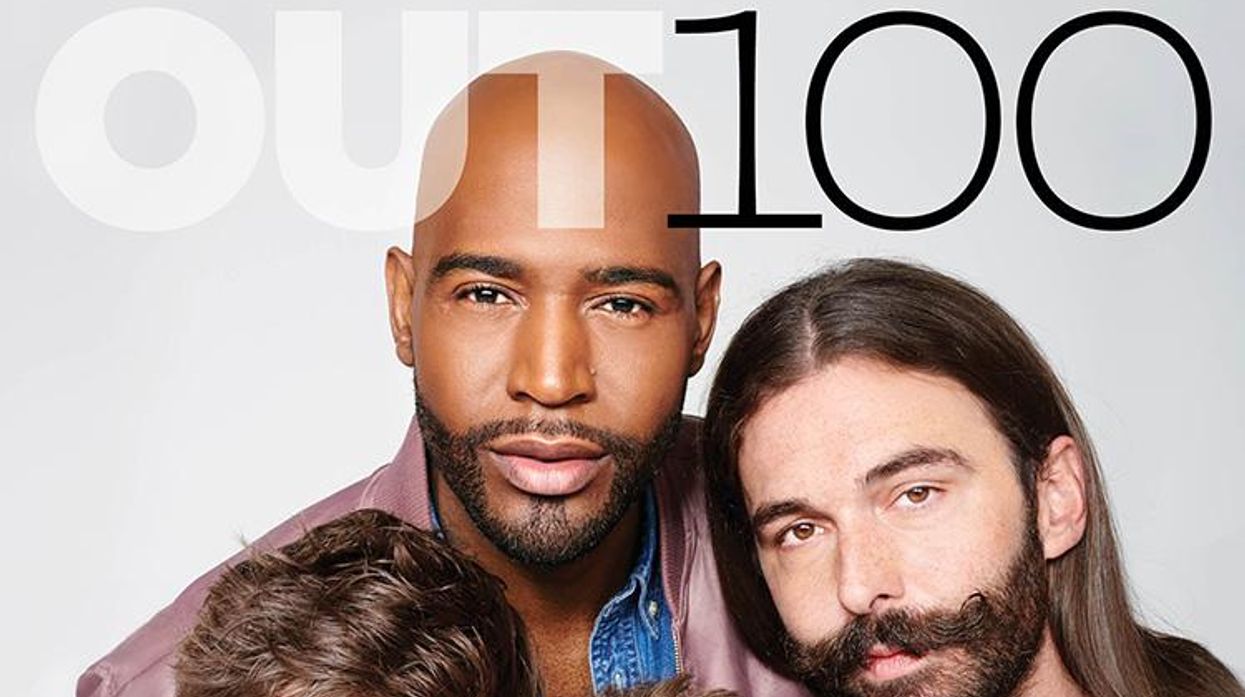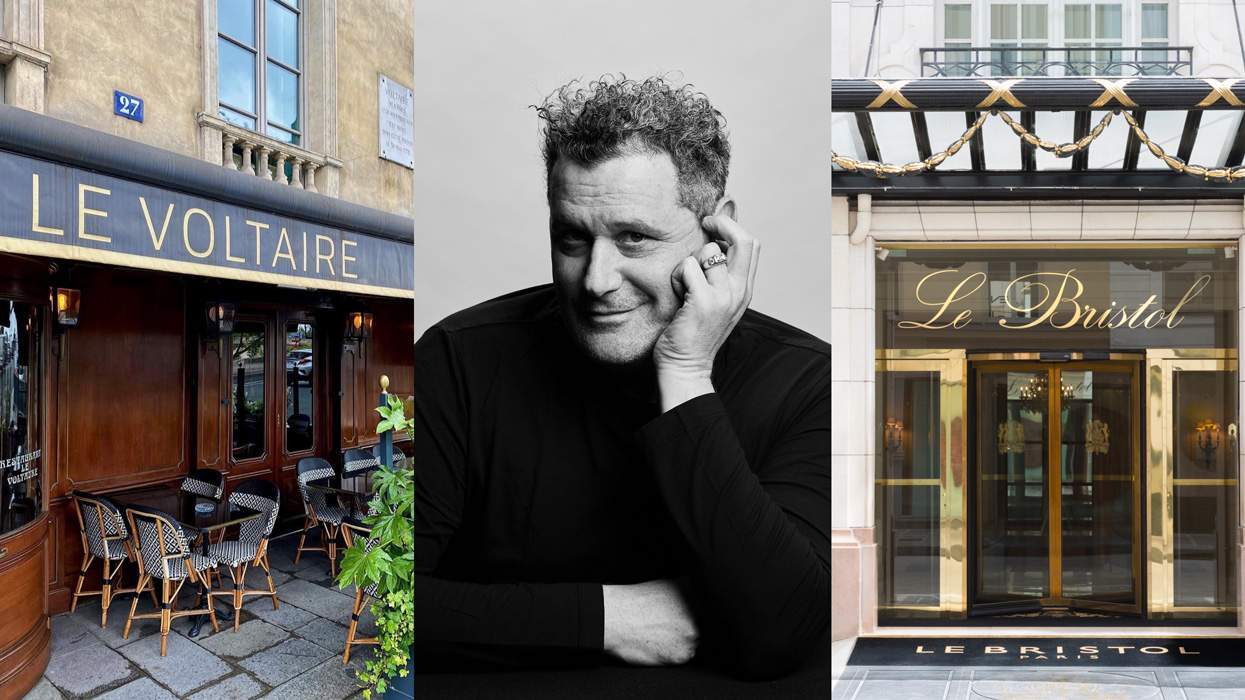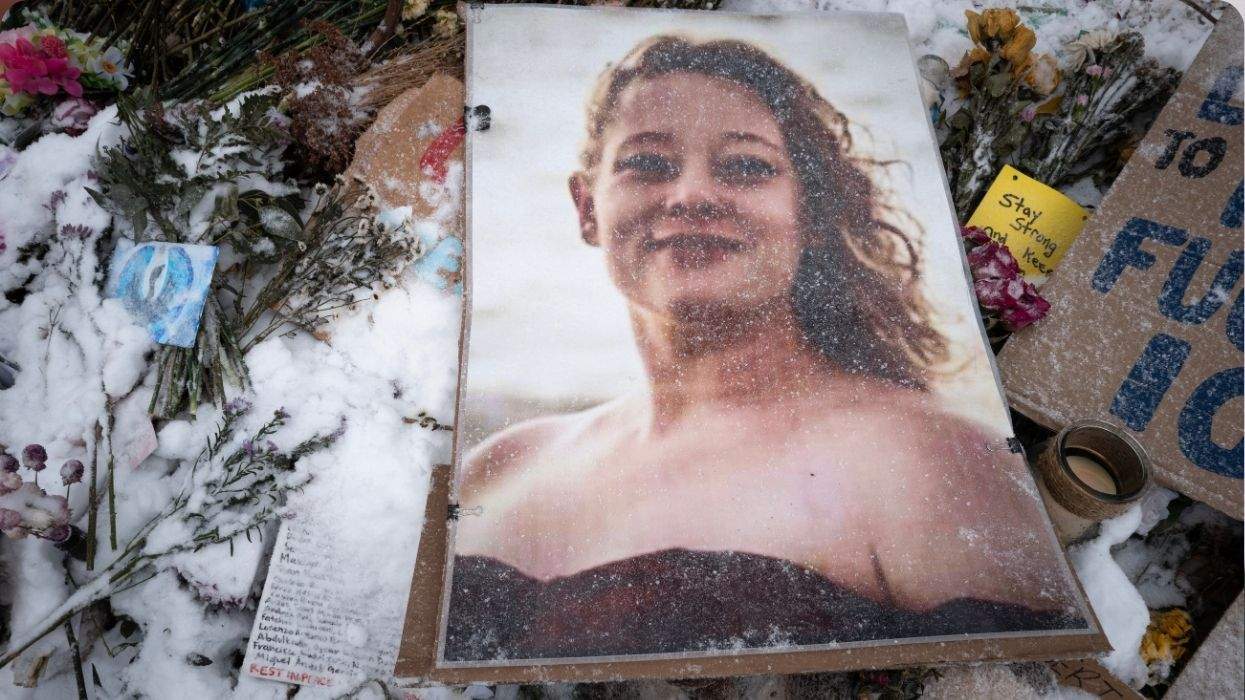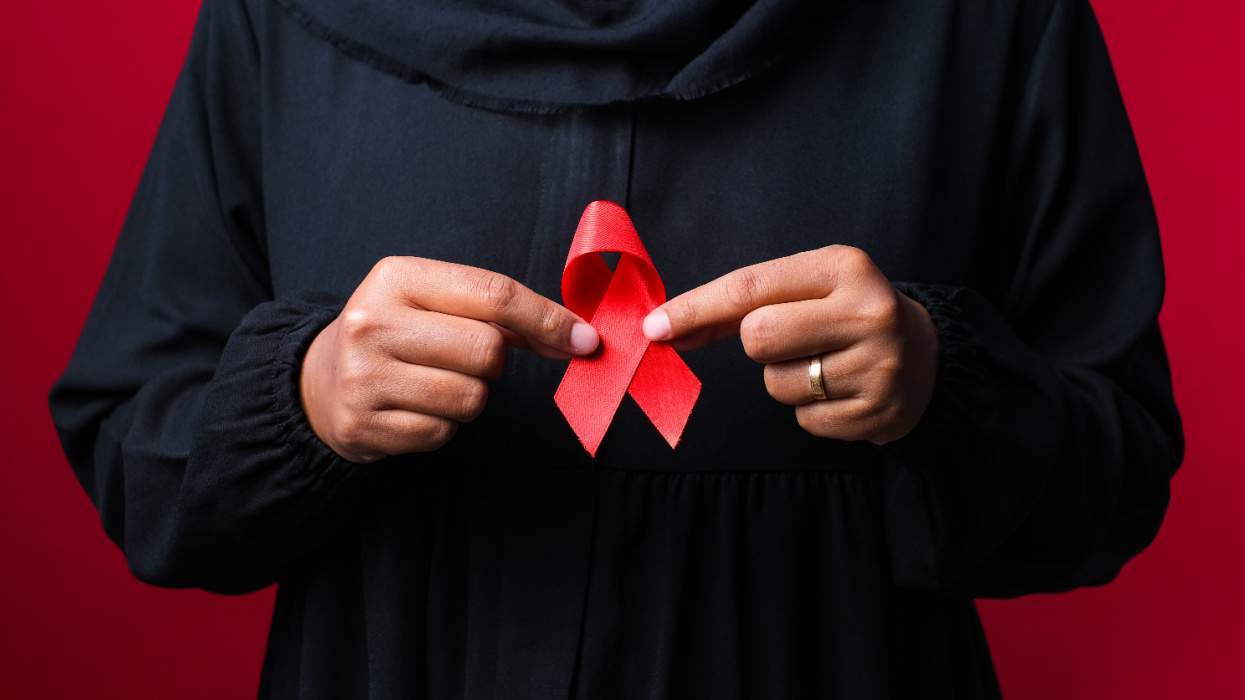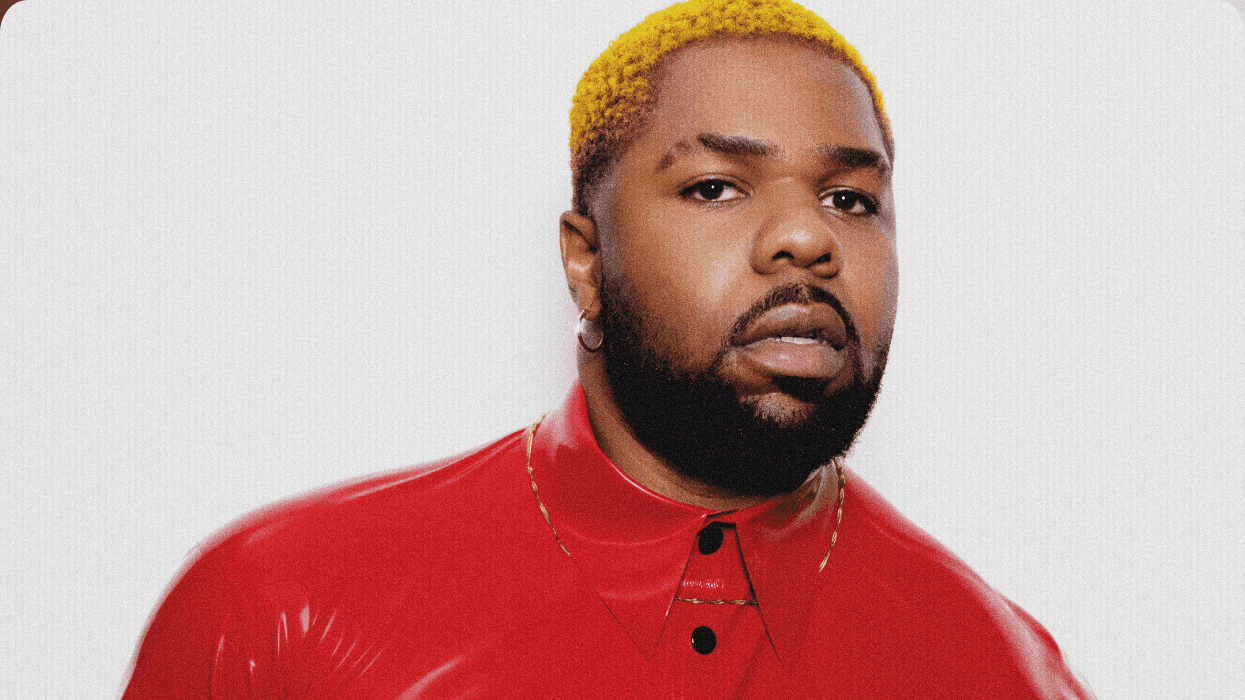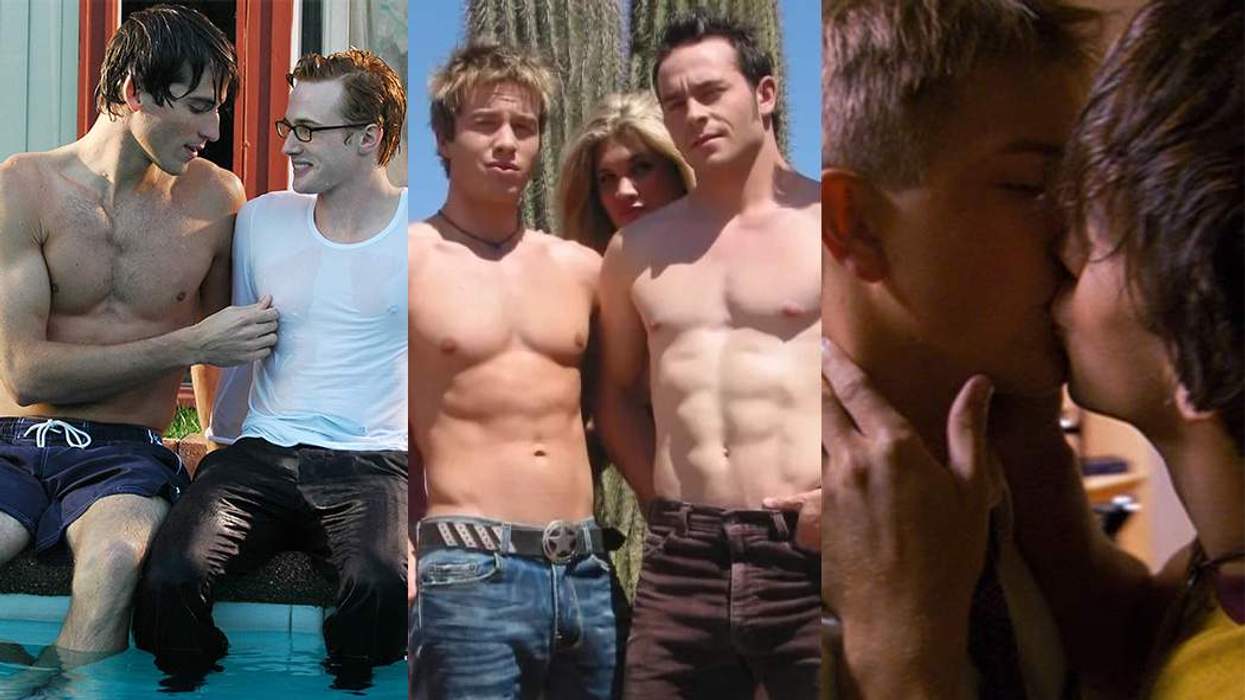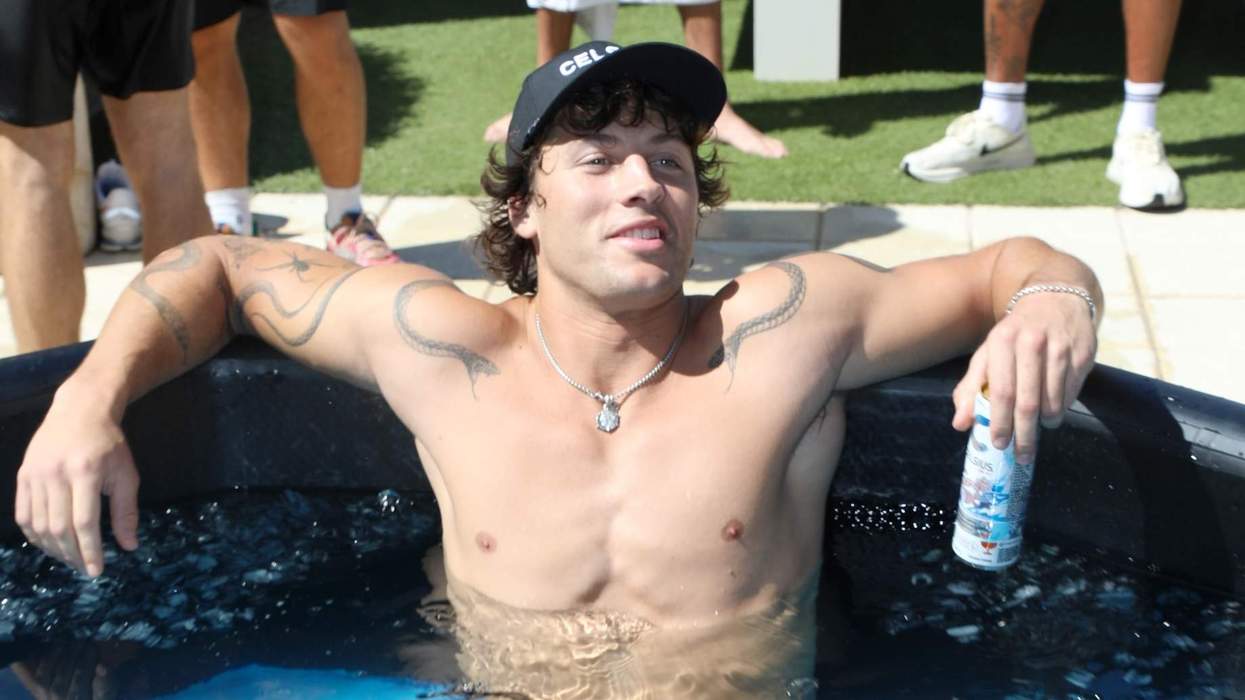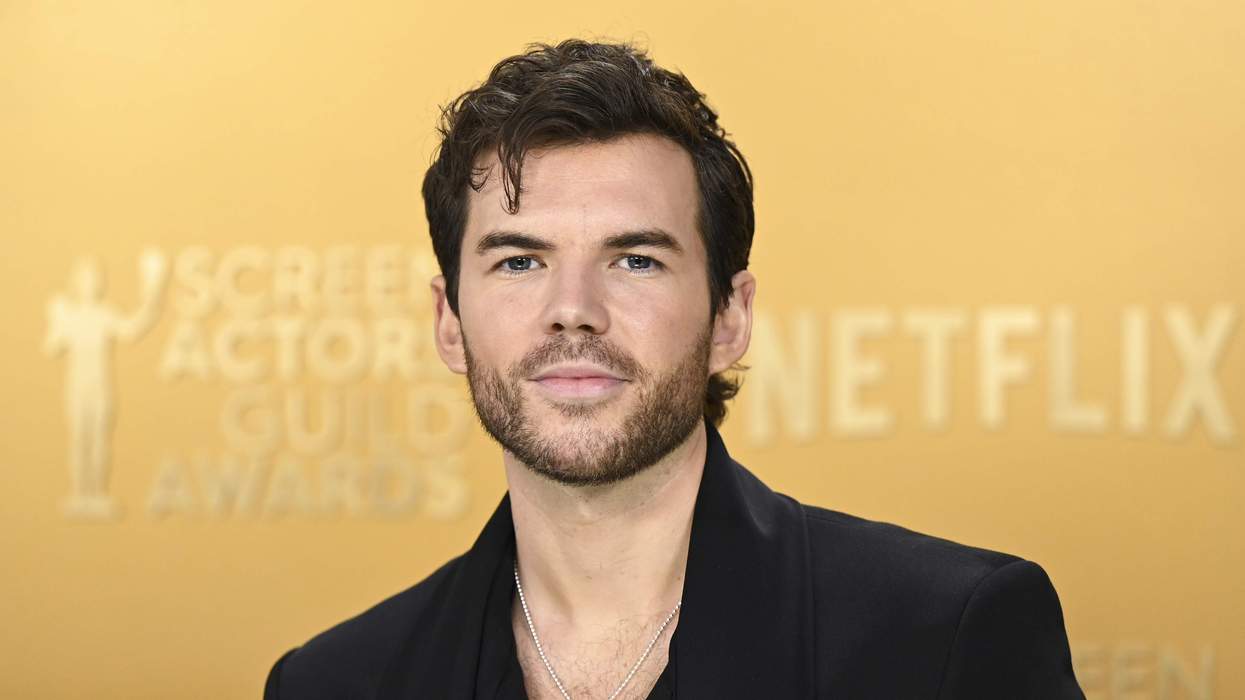It's easy for us to become casualties of our own feeds -- constantly consuming the 24-hour news cycle until we're consumed by it ourselves. With sexual abuse scandals, shootings at schools and places of worship, leaked memos about trans erasure, and ugly spats in a nation that's never been more Red versus Blue, gloom abounds.
Enter the new Fab Five -- Bobby Berk, Karamo Brown, Tan France, Antoni Porowski, and Jonathan Van Ness -- who aim to make things a little brighter. On Queer Eye, Netflix's 2018 reboot of Bravo's reality makeover show Queer Eye for the Straight Guy (which debuted in 2003 ), this diverse quintet isn't just bettering the lives of the on-air subjects they primp, encourage, and advise, they also affect viewers at home -- inspiring us to be better, too, and to challenge the status quo.
TV revivals are undeniably trending, but Queer Eye doesn't feel like it exists just to be part of a fad. With its cast alone, its arrival announced that "queer" doesn't look like it did 15 years ago, and one of its key, empowering messages is vital for the mainstream: LGBTQ people, rather than being a burden, have the ability, strength, and desire to improve people's lives. The Netflix production proves that Bravo's established formula still works, but the magic touch that clinched Queer Eye's success comes down to the infectious, harmonious, and varied personalities of its fresh faces: the spirited Berk, the cool and collected Brown, the ever-stylish France, the sensual Porowski, and the high-heeled Van Ness. Together, they share a wit and rapport that make us want to watch -- and, probably, binge.
"The original show was a trailblazer," says Van Ness, the new grooming guru with a wealth of sassy quips to match his pristine cascade of hair. Berk, the design expert whose religious struggles have enriched his on-air narrative, adds, "I love that we're able to take such a groundbreaking show from a pivotal time in my development and still make it work today."
But Queer Eye has done far more than pay homage to its predecessor. The Fab Five are using their new gig to facilitate countless far-reaching conversations, and because they're leading with empathy, unlikely sources are listening. "I received a message from a pastor who told me he'd been preaching against homosexuality his entire life and changed his ways after watching our show," Berk says. "He said he will never preach that way again."
"We're taking our message of self-care and compassion global," says Van Ness, noting that the show touches people on a national level and also abroad, as Netflix reaches hundreds of countries, which essentially means that Queer Eye is blanketing the world with queer visibility. Says France, the impeccably outfitted style honcho: "The messages I get from people in the Middle East, saying that they're hopeful after seeing themselves represented on TV...that really gets me everytime."
Porowski, the culinary-focused, fan-certified hunk of the group, says "kindness has always been [his] best ammunition," and he, too, is seeing international feedback. "A boy in Poland messaged me about the current political climate and his fear of walking the streets safely," Porowski says. "He said it meant the world to see me march in Montreal Pride this past summer. He said I gave him hope. I never thought I could have that effect on someone."
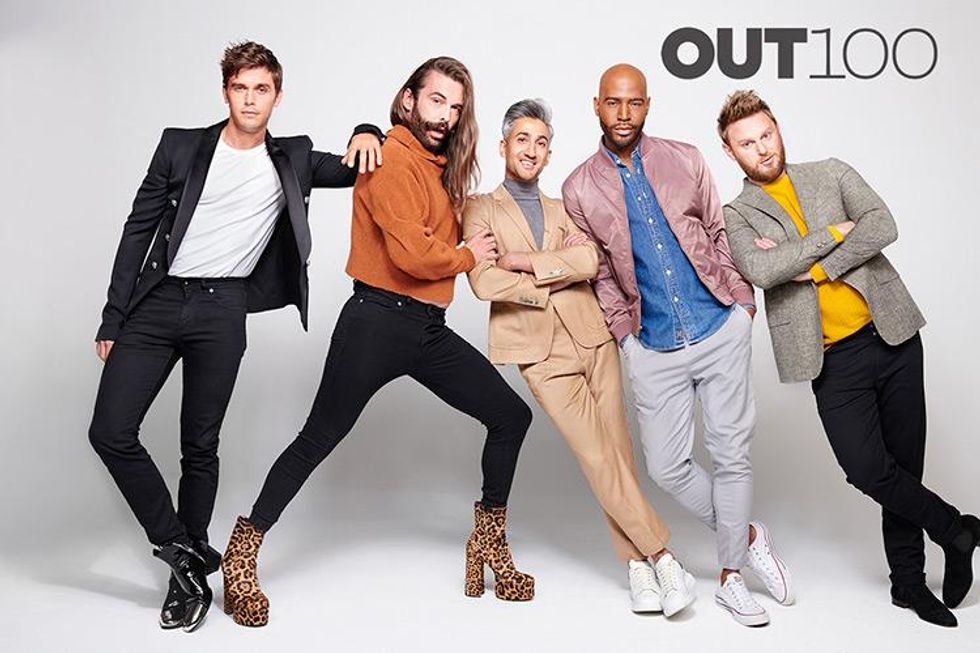
For Brown, the culture vulture and the franchise's first black cast member, expanding what those people look like on Queer Eye is a conscious goal. "It's important to us that the heroes we work with reflect the diversity of voices and viewpoints that make this country what it is," he says. "I'm looking forward to more people seeing themselves in the faces of our season 3 heroes."
What Brown doesn't acknowledge is that to someone, somewhere, he's a hero, too, just like the rest of his castmates. (He also happens to be an alum of Marjory Stoneman Douglas High School in Parkland, Fla., and he salutes fellow Out100 cover star Emma Gonzalez for her and her peers' fight for gun law reform.)
Today, as distressing things happen, we shouldn't look away, but we should search for folks who can offer some respite from the gloom. The cast of Queer Eye is doing that, with bright colors and bold patterns. And we're watching.
Photography by Martin Schoeller.
Styling by Katie Woolley and Aneila Wendt.
Hair and Makeup: Kristin Kent.
Photographed at StageportKC, Kansas City.


